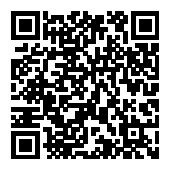每周论坛之二(总第131期):陈劲松(太阳集团官网)2017年2月27日下午
A Triangle Framework for Educational and Psychological Testing and Measurement: Concepts and Real-Life Examples
每周论坛之二(总第131期)
报告人:陈劲松副教授
报告人单位:太阳成集团tyc151cc
题目:A Triangle Framework for Educational and Psychological Testing and Measurement: Concepts and Real-Life Examples
时间:2017年2月27日 (周一,13:30-14:30)
地点:太阳集团官网东校园太阳成集团tyc151cc(南学院楼C座)305
报告简介:
Methodological and theoretical developments in educational and psychological testing and measurement continue to thrive up to the present. However, many of these developments fail to reach a large segment of applied researchers in a concerted or effective way. One reason might be the lack of a useful framework to communicate the complexity between testing and measurement to both insiders and outsiders. This presentation introduces an integrated framework to interpret the testing triangle of evaluation, measurement, and test development. It also attempts to illustrate how the framework can be connected with recent advances in measurement, and how they can benefit researchers across various educational and psychological areas in concert. The first part of the presentation will lay down the context and conceptual foundation of the framework. It will be followed by detailed illustration with examples of newly developed attribute sets, item formats, and test designs using corresponding models in areas that have been often underappreciated in past applications. The presentation will conclude by demonstrating how the framework can be extended to address a wider range of issues, such as mediated effect and multilevel analyses.
报告人简介:
Dr. Jinsong Chen is an Associate Professor in the Department of Psychology at the Sun Yat-Sen University. His research interests cover measurement models, quantitative methods, development and evaluation of measurement instruments, and general issues in educational and psychological testing and assessments. His publications can be found on topics such as cognitive diagnosis modeling, item response theory, structural equation modeling, language and math assessments, and test validation and development.


